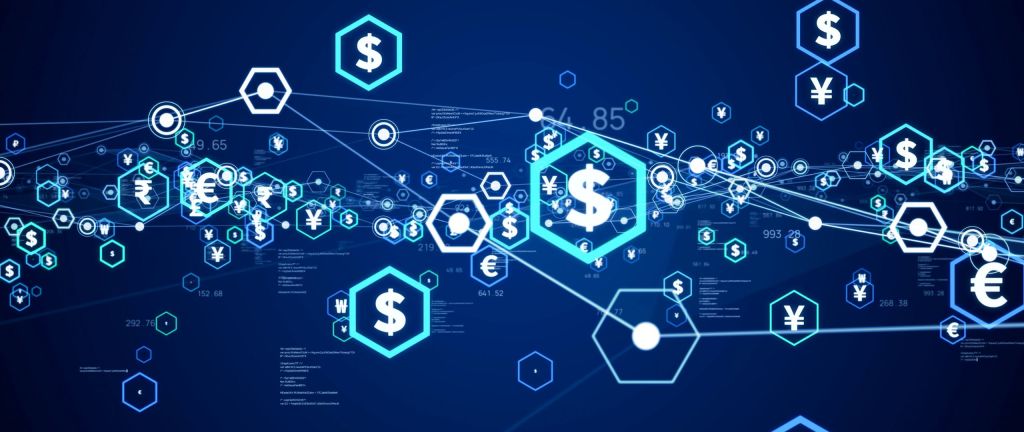The use of AI in Cybersecurity with examples and statistics
Artificial intelligence (AI) software can write three pages of code in seconds. It can produce compelling videos, written content, and even business plans within a matter of minutes. All it takes is the right prompt and the machine will do the hard work for you.
Given all this, artificial intelligence is finding ample uses in cybersecurity. A cybersecurity architect finds AI-powered solutions time-saving when compared to traditional methods of writing and re-writing codes.
Establishing firewalls and authentication protocols is now easier than ever before thanks to artificial intelligence modules.
However, artificial intelligence has also brought in valid threats as this machine can be programmed as per the user’s commands. It can pretty much do anything.
Hence, AI has found an important role in cybersecurity, not just as an asset but also as a competent threat. In today’s digital age, where data is the new currency, ensuring the security of digital assets is paramount.
This article highlights the uses of AI as an asset to mitigate the existing threats to security in the digital realm. We will discuss the significance of artificial intelligence in the cybersecurity space, highlighting its uses, roles, and ethical considerations.
Introduction to AI in Cybersecurity
Artificial intelligence has emerged as a powerful ally against cyber threats.
With the ability to process vast amounts of data, recognise patterns, and make real-time decisions, AI has revolutionised the field of cybersecurity. Its importance cannot be overstated, as it addresses the growing complexity of cyberattacks and the need for proactive defence mechanisms.
How is AI Used in Threat Detection and Prevention?
One of the primary roles of AI in cybersecurity is threat detection and prevention.
- AI-powered systems continuously monitor network traffic, identifying anomalies and potential threats.
- These systems can easily sift through enormous datasets, searching for patterns indicative of malicious activity.
- AI may find great uses in Big Data analytics and data insights due to its ability to organise and make sense of large data sets in record time.
- AI can predict potential threats by analysing historical data and preventing them before they cause harm.
The use of AI in cybersecurity has significantly enhanced threat detection and prevention capabilities.
AI algorithms can detect even subtle deviations from normal network behaviour, providing early warnings of potential cyberattacks.
How AI is Used in Intrusion Detection and Prevention
Intrusion detection and prevention are critical aspects of cybersecurity.
AI plays a pivotal role in this domain by identifying and mitigating unauthorised access attempts.
- AI-driven systems can quickly analyse access logs and identify suspicious activities, reducing the risk of data breaches.
- These AI systems not only detect intrusions but can also respond with automated countermeasures, strengthening overall cybersecurity.
How does AI Monitor User Authentication and Access Control?
User authentication and access control are fundamental in safeguarding digital assets. AI technologies enhance these processes by analysing user behaviour and identifying irregularities.
For example, AI can detect unusual login patterns or access requests, flagging them for further scrutiny.
AI in cyber security is instrumental in creating multi-factor authentication systems that adapt to the user’s behaviour. This ensures a seamless yet secure user experience. The use of AI has significantly reduced unauthorised access attempts and identity theft cases.
How is AI used to track phishing and social engineering defence?
Phishing and social engineering attacks continue to be prevalent threats in the digital realm. AI-driven solutions have bolstered defence mechanisms against these deceptive tactics.
- AI algorithms can analyse email content, identify phishing attempts, and block malicious links.
- Furthermore, AI can detect patterns in social engineering attacks by monitoring communication channels.
- By recognising unusual language or requests, AI systems can alert users and security teams to potential threats.
AI’s role in mitigating these attacks is invaluable, as it prevents unsuspecting individuals from falling victim to scams.
AI in Security Operations and Incident Response
AI not only aids in threat detection but also streamlines security operations and incident response.
AI-driven security information and event management (SIEM) systems can analyse security alerts and prioritise them based on their severity. This reduces the workload on security teams, allowing them to focus on critical threats.
Moreover, AI can automate incident response procedures by seamlessly following business protocols.
For example, in the event of a DDoS (Distributed Denial of Service) attack, AI can reroute traffic, ensuring the continued availability of online services.
This rapid response capability is essential in minimising downtime and damage during cyberattacks. Today’s industry-oriented Cybersecurity courses can be of much help in training you in AI tools responsible for this advantage.
AI-enabled Threat Intelligence
AI is an asset in gathering and analysing threat intelligence.
- AI-driven systems can monitor the dark web and other sources for information about potential threats.
By processing this data, AI can provide organisations with actionable insights, enabling them to proactively defend against emerging cyber threats.
- Additionally, AI can correlate threat intelligence with an organisation’s existing security infrastructure, identifying vulnerabilities and recommending security patches or updates.
This proactive approach enhances an organisation’s cybersecurity posture.
AI Ethics and Bias in Cybersecurity
While AI brings substantial benefits to cybersecurity, it needs training in ethical biases.
AI systems must operate transparently and without bias.
Biased AI algorithms may not be able to correctly assess user commands and requests for access to data. Hence, they may end up granting access to the wrong parties along with producing incorrect threat assessments.
Organisations must implement ethical AI practices, ensuring fairness, transparency, and accountability in their cybersecurity solutions.
The ethical use of AI in cyber security is essential to maintain trust and uphold ethical standards.
AI-driven Automation in Cybersecurity
The automation of routine tasks through AI is a game-changer in cybersecurity. AI can autonomously respond to threats, apply security patches, and adjust security configurations. This reduces the workload on cybersecurity professionals, allowing them to focus on strategic tasks.
AI-driven automation also enables real-time threat response, minimising the dwell time of cyberattacks. Nearly 69% of organisations confess that they cannot handle cyber breaches and attacks without AI. (Source: Zipdo)
The Banking sector has also seen a herculean 280% rise in cyberattacks over the past few months, this type of surge requires the use of AI. A study confirms that AI has helped detect cyber breaches and improved security. Without the use of Artificial intelligence, nearly 63% of cyber attacks were reportedly untraceable.(Source: Zipdo)
The role and importance of AI in the cybersecurity space are undeniable. AI’s ability to detect threats, prevent intrusions, enhance user authentication, defend against phishing attacks, streamline security operations, and provide threat intelligence is transforming cybersecurity practices.
However, ethical considerations are crucial in ensuring the responsible use of AI in cyber security. As cyber threats continue to evolve, AI will remain an essential tool in defending against digital adversaries.
To make yourself an asset in the growing market for AI developers and cybersecurity professionals, consider enrolling yourself in a reputed cybersecurity course. The London School of Business and Finance in Singapore (LSBF), offers you one of the most industry-oriented cybersecurity courses along with placement assistance and mentorship from industry veterans.
Enrol today!



